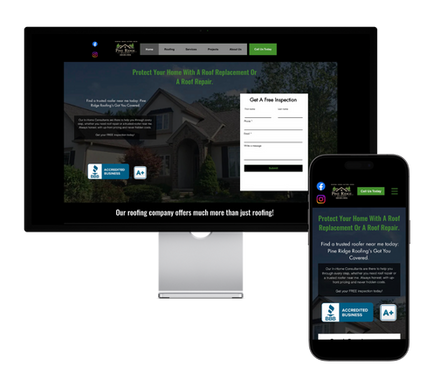WEBSITE DEVELOPMENT
Empower Your Local Enterprise Online
A professional website is crucial for local businesses as it serves as a 24/7 digital storefront, boosting credibility, expanding reach to potential customers, and acting as a powerful marketing tool to showcase products/services and increase sales in a competitive market.
Why Having A Website For Your Local Services Is So Important
Increased Visibility: A website acts as a digital storefront, making your local services accessible to a broader audience. It ensures that potential customers searching online for services in your area can find and learn about your offerings easily.
Credibility and Professionalism: A well-designed website enhances your credibility. It provides a professional image of your services, instilling trust in potential customers who often use a website as a deciding factor when choosing a service provider.

24/7 Availability: Unlike physical stores with specific operating hours, a website is accessible round the clock. This availability allows customers to learn about your services, make inquiries, or even schedule appointments at any time convenient for them, increasing convenience and accessibility.
Marketing and Branding: A website serves as a powerful marketing tool. You can showcase your services, highlight testimonials, share success stories, and employ various digital marketing strategies like SEO and content marketing to attract and engage potential customers, enhancing your brand's visibility and recognition.
Competitive Edge: In a competitive local market, having a website gives you an edge over competitors who might not have an online presence. It allows you to stand out, capture more leads, and effectively compete for customers' attention.
Customer Engagement and Communication: A website facilitates direct communication with your audience. You can provide valuable information, address FAQs, and engage visitors through contact forms, live chats, or newsletters, fostering a stronger relationship with potential and existing customers.
Website Development Process:
-
Planning: Define goals, target audience, location, and content.
-
Custom Design: Tailored visuals, branding, and layout.
-
Development: Code the website, integrate features, and optimize for performance.
-
Testing: Ensure functionality, responsiveness, and user experience.
-
Launch: Deploy the website and make it live.
-
Maintenance: Regular updates, security checks, and improvements.







